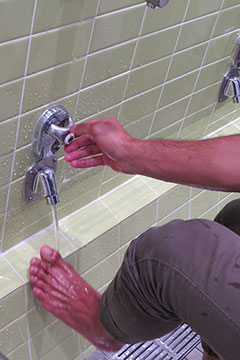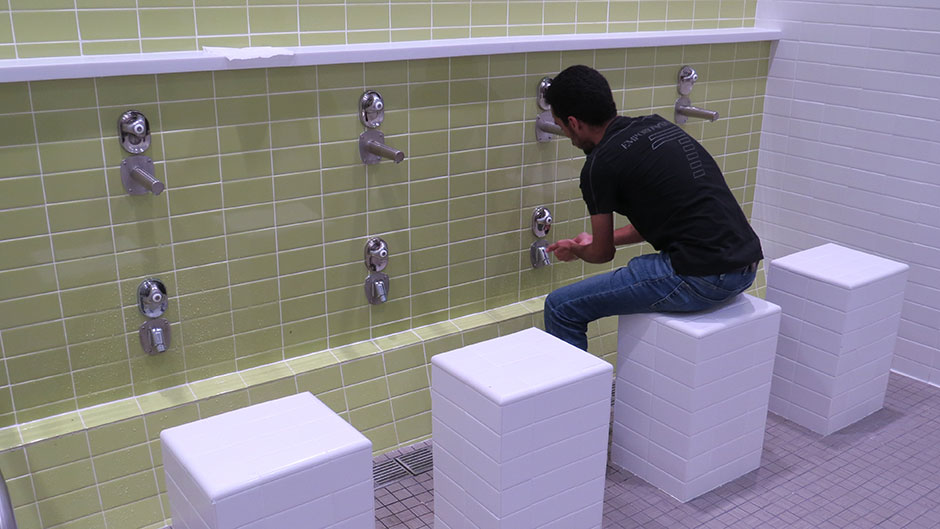For those who practice the Islamic religion, an addition to the University of Miami’s Storm Surge space in the University Center is more than just a place for Friday prayer.
An ablution area was recently installed to provide a space for the cleansing process prior to prayer.
According to University Business, other schools such as Minneapolis Community and Technical College and George Washington University have also installed ablution rooms to accommodate Muslim students on their campuses.
Wudu, or ablution, is a traditional ritual that refers to the mental preparation and physical cleanliness before prayer. Now Muslim students at UM have a place to perform the ritual before the five daily prayers. Previously, the students would utilize the public bathroom in the University Center.
“There was an awkwardness to it, people didn’t understand what we were doing,” said Areeba Imam, president of the Muslim Students Association.
 Ablution can be performed in four steps or more but it generally begins with washing the face, the hands up to the elbows, the head and lastly, the feet up to the ankles. Now with a designated space, students can comfortably perform the ritual for prayer.
Ablution can be performed in four steps or more but it generally begins with washing the face, the hands up to the elbows, the head and lastly, the feet up to the ankles. Now with a designated space, students can comfortably perform the ritual for prayer.
When the ablution area was opened in March, students who had previously been using the Shalala Student Center for the ritual were pleased with the addition in the Storm Surge room.
“I was ecstatic, it was so thoughtful for the school. It was phenomenal, no one was expecting it,” Imam said. “A lot of times we feel a little left out from the community so to see this… it showed they were meeting us in the middle.”
Tariq Syed, subject matter expert in the Information Technology Department, said the ablution room “promotes inclusion and awareness.”
“For the university to make a commitment to give Muslim students a space is kind of a big deal,” Syed said.
Imam also agreed and mentioned how a school as diverse as UM is one of the reasons why many students attend the university.
“There’s a hub of different people on campus and they’re catered to, it’s why people come here. It’s a reaffirmation that they value the different students,” she said. “In fact, I wear my head scarf and don’t feel marginalized here, in fact I feel really safe.”

